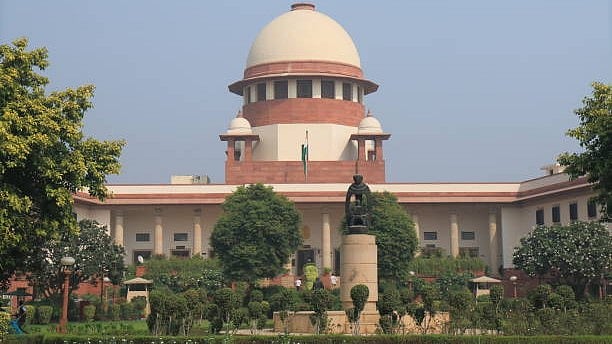
The Supreme Court of India
Credit: iStock Photo
NEW DELHI: The Supreme Court on Thursday nullified its previous judgments by making it categorical that no timeline can be fixed for the Governor and the President to clear the Bills passed by the state legislatures.
A bench of Chief Justice of India B R Gavai and Justices Surya Kant, Vikram Nath, P S Narasimha and Atul S Chandurkar, in its opinions on the Presidential reference, pointed out, a state of doubt, or confusion, has arisen in relation to various issues concluded by this court in the case of Tamil Nadu on April 8, 2025, some of which were considered and decided in other decisions prior to it (many of which by benches of larger strength).
"A perusal of the decision of this court in Tamil Nadu case would reveal that at least some of the conclusions are in variance with earlier decisions, although the decision seeks to reconcile this departure from earlier precedents,'' the bench said.
In this context, the bench said, this court finds that an authoritative opinion of this court is mandated since the law on the functions of the Governor and the President under Article 200 and Article 201, cannot be left in a state of confusion, as it would impede smooth functioning of the Constitution.
The bench stressed this court cannot shirk away from its responsibility to iron out constitutional creases, to authoritatively clarify the roles of constitutional institutions, when doubts as to their roles and powers are raised.
It was also argued by the States of Tamil Nadu and Kerala among others that it was impermissible to overrule an earlier precedent of this court, (particularly April 8 judgment) while exercising jurisdiction under Article 143.
"On this aspect, we find it appropriate to refer to the opinion of Justice Y V Chandrachud, in 'In Re: Special Courts Bill 1978' where the binding effect of an opinion rendered under Article 143 jurisdiction, is discussed at length,'' the bench said.
Justice Chandrachud had then said, though it is always open to this Court to re-examine the question already decided by it and to overrule, if necessary, the view earlier taken by it, insofar as all other courts in the territory of India are concerned they ought to be bound by the view expressed by this court even in the exercise of its advisory jurisdiction under Article 143(1) of the Constitution.
"We find that the reasoning of Chandrachud, J (speaking for the majority) in the seven-judge bench decision of In Re: Special Courts Bill is compelling, insofar as it holds that our opinion may even go so far as to “overrule, if necessary”, the view taken earlier by this very court,'' the bench said.
The bench, however, pointed out the questions raised in the present Presidential reference would not require this court to vacate, amend, or modify the final relief granted in Tamil Nadu case, and instead, at the most, seek clarification on the propositions of law laid down in it, which have ramifications for the governance of all States, i.e., beyond the parties that were before it in that lis.
In this regard, the court accepted the submission made by the Attorney General R Venkatramani, and Solicitor General Tushar Mehta that the present reference sought clarification of constitutional principles for future governance, and not the setting aside of an already awarded decree, or the relief granted.
